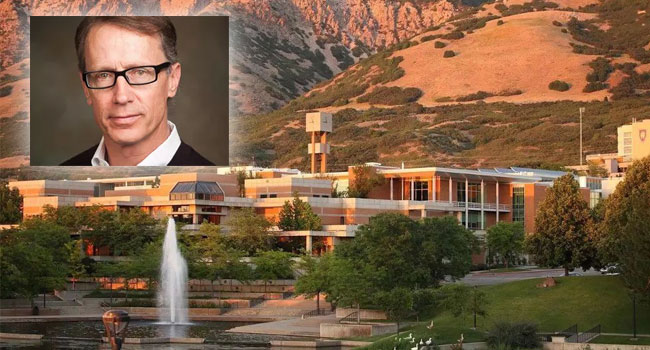
Weber State Professor Put on Leave
Instructor posts “abhorrent” tweets in aftermath of George Floyd’s death
- By Ralph C. Jensen
- June 03, 2020
Scott Senjo, a tenured professor at Weber State University (WSU), has been put on leave following social media tweets that university officials call “abhorrent.” He has been relieved of his duties, and removed from teaching classes.
WSU is located in Ogden, Utah, and is a state sponsored university.
Senjo confirmed that he is employed at the university, and has issued an apology. He also noted that “It is more than likely that I’ll need to resign,” he said.
School officials said the posts were out of line with the school’s values. Sonja posted provocative tweets commenting on news media and ongoing protests following the death of George Floyd, who died during an arrest in Minneapolis on May 25.
Some tweets were aimed at news organizations or journalists.
Senjo responded to a tweet by Wall Street Journal reporter Tyler Blint-Welsh, who tweeted his ankle was injured and glasses knocked off when he was reportedly struck in the face by New York City police multiple times with riot shields despite wearing a press credential and holding his hands up.
Senjo responded, “Excellent. If I was the cop, you wouldn’t be able to tweet.”
In another tweet, @ProfSenjo referred to protesters vandalizing the CNN building in Atlanta, saying: “Nothing about this makes me happy but there’s this tiny sense of rightness in the burning of the CNN headquarters.”
Still another addressed a widely viewed video of New York Police Department vehicles that plowed into a crowd of protesters. Senjo’s account no longer exists. Nearly 2,000 people have signed an online petition calling for Senjo’s removal.
A Change.org petition posted Sunday says in part: “His tweets go against freedom of speech and diversity of opinion as he is pushing for violence against press, as well as people of color. Criminal justice students at Weber deserve better. Students of color at Weber deserve better. This is a call for Weber State University to do better and be better by firing Scott Senjo.”
Senjo wrote in an email that he was responsible for the tweets. “But I don’t stand by them and will have to suffer the consequences of my recklessness,” he said.
Senjo is a tenured professor who holds a number of advanced degrees, including a doctorate from Florida Atlantic University and a law degree and master’s degree in public policy and administration from the University of Utah. He earned his undergraduate degree in political science from the University of California, Berkeley.
About the Author
Ralph C. Jensen is the Publisher/Editor in chief of Campus Security Today.